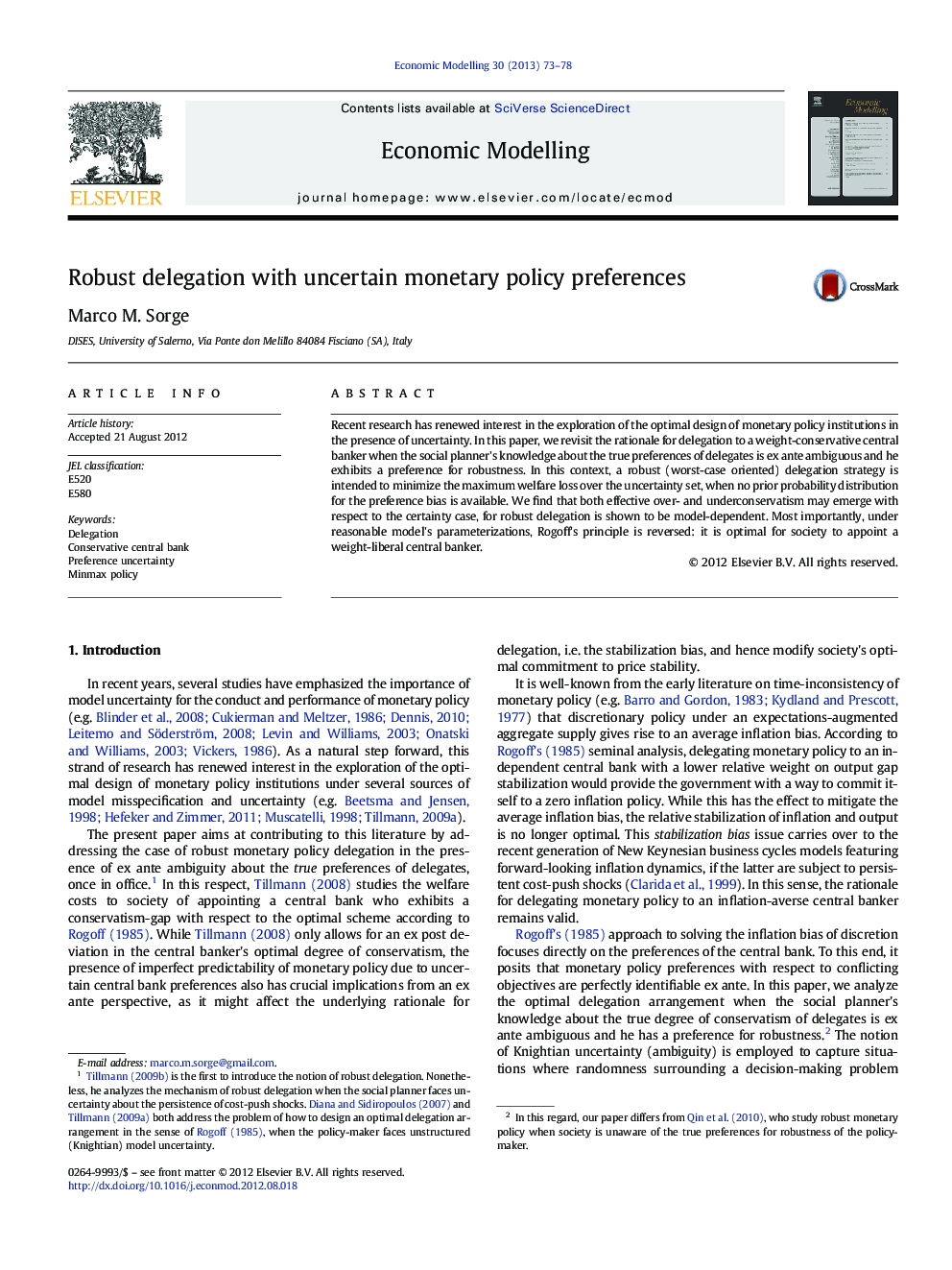| Article ID | Journal | Published Year | Pages | File Type |
|---|---|---|---|---|
| 5054692 | Economic Modelling | 2013 | 6 Pages |
Recent research has renewed interest in the exploration of the optimal design of monetary policy institutions in the presence of uncertainty. In this paper, we revisit the rationale for delegation to a weight-conservative central banker when the social planner's knowledge about the true preferences of delegates is ex ante ambiguous and he exhibits a preference for robustness. In this context, a robust (worst-case oriented) delegation strategy is intended to minimize the maximum welfare loss over the uncertainty set, when no prior probability distribution for the preference bias is available. We find that both effective over- and underconservatism may emerge with respect to the certainty case, for robust delegation is shown to be model-dependent. Most importantly, under reasonable model's parameterizations, Rogoff's principle is reversed: it is optimal for society to appoint a weight-liberal central banker.
⺠We revisit Rogoff's delegation under Knightian preference uncertainty. ⺠A minmax strategy to delegation is adopted by the social planner. ⺠Robust delegation is shown to be model-dependent. ⺠Either over- or underconservatism may emerge under uncertainty. ⺠Under reasonable parameterizations, Rogoff's principle is reversed.
